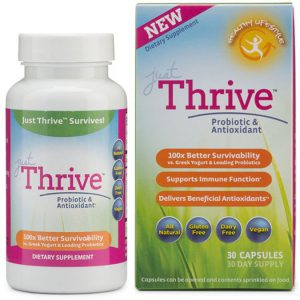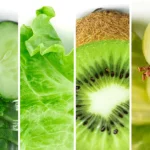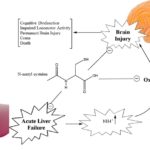Superfoods to Upgrade Your Brain
What’s in a Superfood?
Nowadays, everyone wants to call almost every food a superfood. So what is a superfood? We define a super food as having a very high nutrient to calorie ratio so basically there would be a lot of nutrients per calorie.
This list has our top priority list of the superfoods that you should be eating if your goal is to optimize your brain function. In this article, we are going to talk about what supplements or foods you need, why you need them, and where you can get the best kind.
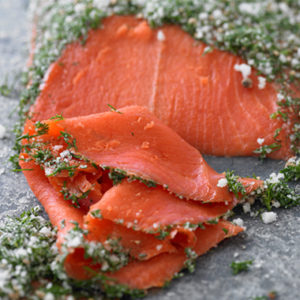
Salmon (And Other Fatty Fish)
Clean salmon that is wild-caught is the ultimate brain superfood. The irony is that if your salmon is contaminated with mercury, then it becomes the opposite of a superfood especially for your brain.
The Omega-3’s are a great example of the amazing nutrients for brain power in salmon. Read our Full Articles on DHA and Omega-3’s here.
What Else Makes Salmon and Fatty Fish Superfoods?
However, salmon is also powered up with CoQ10, vitamin D3, B12, and E, selenium, and astaxanthin which gives salmon its red color. With the exception of astaxanthin, most of these nutrients can be found in other fatty fish.
Salmon is an antioxidant powerhouse that will give you energy at a cellular level. Salmon is also loaded down with a complete protein that is lean, flavorful, and full of nutrition.
Eggs are a close second to salmon because they contain many of the same nutrients, but many people have egg allergies or underlying viral issues that make eggs an inflammatory trigger for some.
DMAE: Dimethylaminoethanol
Salmon, and many other types of fish also contain DMAE which is a brain super nutrient that can also be taken as a supplement. DMAE increases acetylcholine in the brain which helps to improve focus, memory, and learning.
DMAE also helps by increasing the quantity of nutrients that reach the brain. It also allows toxins like lipofuscin to leave the brain, and body more easily. Lipofuscin build up in the head is the number one cause age related vision impairment, and one of the top causes of age-related cognitive decline outside of dementia and Alzheimer’s.
Read our Full Article on Fish here.
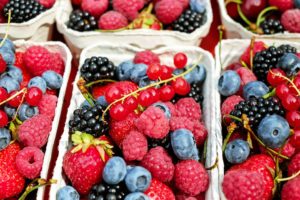
All Berries
All berries are low in sugar and fructose, but they are very high in nutrition and antioxidants.
Most of them have vitamin C, but some of them even have vitamin A, flavonoids of various kinds, and they are very high in antioxidants like anthocyanins.
Berries and Hormone Health
Berries also all have a type of soluble fiber called calcium-D-glucarate in them. This fiber turns into glucaric salts and glucaric acids that filter through the liver cleansing it for up to 5 hours.
This type of fiber can also help to remove toxic xenoestrogens out of the intestinal tract. Toxins from plastics, pesticides, and personal care products can be cleared out with this fiber.
Many berries like goji berries, goldenberries, mulberries, and even blueberries are available online in dried forms without sugar added.
All Seaweed
Seaweed has practically no calories yet it is packed with a ton of flavor, fiber, vitamin A, vitamin C, and more. The heavy hitter that makes it a must is iodine.
Iodine along with Omega-3’s are two of the biggest deficiencies in the US right now. Iodine is not only required to produce thyroid hormone, but it’s also important for the myelination of neurons.
Seaweed and algaes like spirulina, chlorella, AFA, nori, wakame, kombu, kelp, and dulse also tend to be chock of B vitamins, and minerals in addition to the other nutrients listed above. Of course the most common place we see seaweed is in Japanese restaurants especially in sushi.
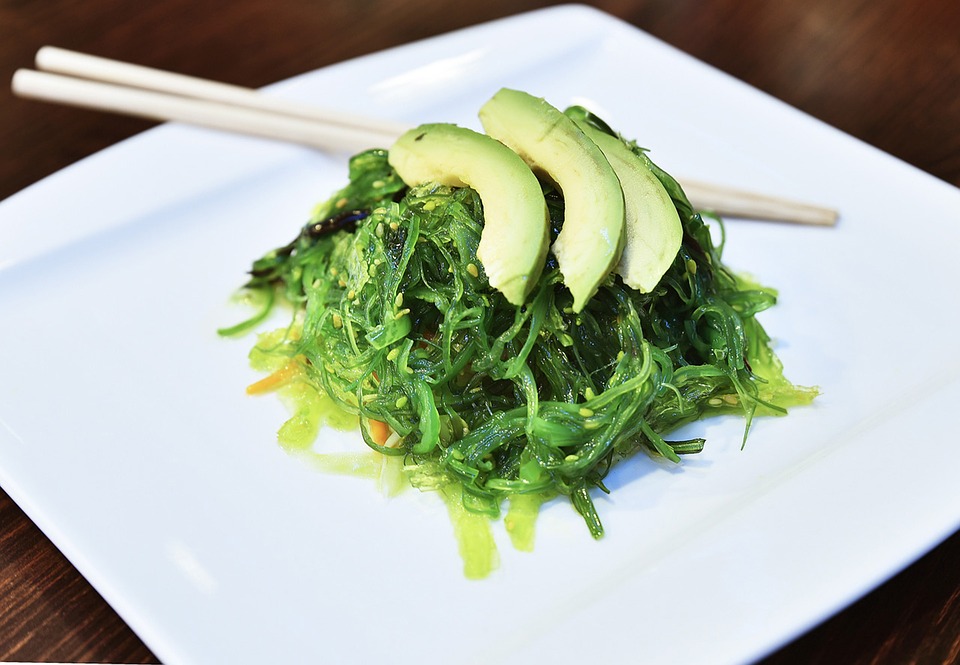
Read our Full Article on Seaweed here.
All Organ Meat
To most people, the idea of organs like liver or sweetbreads are not appetizing, but they are loaded down with key nutrients for brain health!
They are amazingly high in choline, B vitamin complex (especially B12), fat-soluble vitamin A, and minerals like zinc, selenium, copper, and phosphorus.
We like to offer you high-quality fresh organs and high quality encapsulated organs so you could get what works best for you.
I personally like to take the encapsulated ones below by Ancestral Supplements, but also read our Full Article on Organ Meats here.
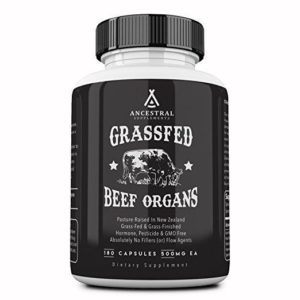
Avocados
Avocados are loaded down with healthy monounsaturated fats, potassium, fiber, and of course, vitamin E. The vitamin E extends to the oil too which also has a very high smoke point over 500°F.

Avocados are great for a snack or even for the bulk of a meal because it has a lot of protein, fat, and fiber, but there are even special kinds carbohydrates and omega oils in them that help to stabilize blood sugar.
Read our Full Article on Blood Sugar here.
The vitamin E also means that they balance out free radicals that can damage our bodies or even create cancer. Our bodies produce omega-9’s like oleic acid, but as we get older, our ability to convert these fats decreases. Avocado, and olives are great sources of oleic acid which also contributes to overall brain health as unhealthy brains tend to have less fatty acids.
The Crucifers
All cruciferous veggies tend to be amazing for both our hormone health and brain health. Cruciferous veggies include broccoli, Brussel sprouts, cauliflower, kale, radishes, turnips, arugula, and more.
All of these veggies are full of sulfur compounds like MSM (methylsulfonylmethane), sulforaphane, and many glutathione precursors. Glutathione is often called “the Master Antioxidant”.
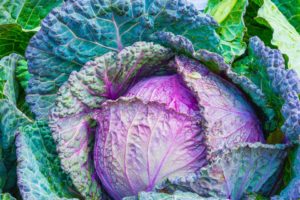
Crucifers and Hormones
Cruciferous veggies help to balance hormones in a variety of ways in addition to having potent antioxidant capabilities.
It all starts with I3C (aka Indole – 3 – Carbinol), which blocks estrogen receptor sites on cells. In your body, I3C turns into DIM (aka diindolylmethane), which prevents your testosterone from flipping into estrogen.
This is important now that our environment is saturated with xenoestrogens and hormone disruptors like BPA (bisphenol-a), pthalates, and parabens from plastics, pesticides, and personal care products.
The saying “eat your greens to grow up big and strong” was not too far off after all. If you want to eat a therapeutic diet, then I recommend getting at least 2-3 servings of crucifers per day preferably a combination of raw, cooked, and fermented.
Fermented Crucifers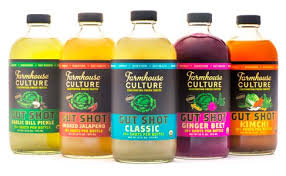
My favorite way to eat crucifers is fermented so Korean kimchi, and German sauerkraut is a great way to get cruciferous vitamins, minerals, and antioxidants in addition to the probiotics.
It is another tasty way that you can get very flavorful foods into your meal that are also flavorful. Ferments and probiotic pickles are definitely on the superfoods list.
I highly recommend Farmhouse Culture. They don’t give us affiliate commissions, I just really love their “gut shot” probiotic juice. I like the jalapeno flavor and kimchi flavor. Bubbies is another good brand for probiotic pickles, and raw sauerkraut.
Healthy Gut, Healthy Brain
If you want to heal your brain or any part of your body then start with your digestion and food intake. If your gut lining is permeable, then odds are your blood-brain barrier will be permeable as well.
SBO’s and Probiotics are a top supplement to get to inoculate your intestines with friendly microbes that will help you absorb nutrition, and they will help protect you from invading microbes. Scientists at the Human Microbiome Project have realized that we have ten times as many foreign cells in our body than human cells.
We are “super-organisms” that contain a vast ecosystem in, on, and around us. It is through this coating of microbes, fungi, and viruses on the inside and out that allows us to interact with our world on the cellular level.
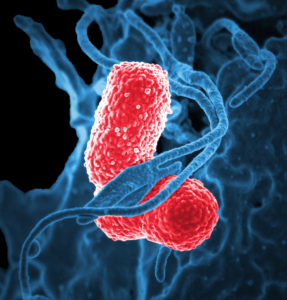
Probiotic Supplements
It is good to supplement some probiotics at some point in your life because of the antibiotics that almost all of us have taken at some point in our lives. We have all taken bombs in our microbiome.
Eating fermented food is a great tool, but the reason I recommend a probiotic supplement is for the spore-based probiotics.
Probiotics and The Environment
These microbes digest fiber and live in our colon. We have lost these kinds of microbes in many farms, and in many soils. They work synergistically with the plants in harmony.
Natural Immune Boosters
For those of you who are not up to speed about the human microbiome, between 70%-80% of our immune system resides in our gut more specifically in our small intestine where there are many key microbes and receptor sites to keep us healthy. So probiotics are what I take when I feel a cold or something coming on. Try it! I’m telling you… It works like a cham!
Survival is The Key
If your probiotic supplement never makes it here, then it is not doing its job.
Many probiotics are forms of bacteria that do not survive the acid in our upper intestinal tract so even if they are living probiotics, your supplement may still be a waste of time and money. Soil-based organisms will survive the acid in our gut and get to the colon, but there is very little research on the benefits of these types of organisms.
With all of this in mind, I was at a loss of what to tell to help my health coaching clients to use for a probiotic supplement. What works for one person’s unique selection of organisms may be toxic for someone else so how do we know what to use?
Show Me The Data!
As many of you know, I am a sucker for double-blind placebo-controlled studies, but I still like to remain a healthy skeptic when it comes to studies paid for by the company who produces a product. In this case, I gotta say that these studies were very impressive in their metrics and effects.
The first study involved yogurt, Greek yogurt, a top probiotic supplement, and Just Thrive Spore-Based Probiotics, and what they found was astonishing. Just Thrive had a 100% survival rating as it passed through the acid in our stomachs! The other probiotics had less than a 0.1% survival rate!
That’s why this is the only probiotic I recommend:
Read our Full Articles on the Microbiome, and Digestion here
Our favorite SBO probiotic is pictured below. These are stable at room temperature because these organisms thrive in the soil.
These are 29 synergistic organisms that can survive the acids in the upper intestinal tract, and reach the colon where they ferment dietary fiber to create short chain fatty acids like butyric acid that can stabilize blood sugar and aid the myelination process in the nervous system.
FDA Compliance
The information on this website has not been evaluated by the Food & Drug Administration or any other medical body. We do not aim to diagnose, treat, cure or prevent any illness or disease. Information is shared for educational purposes only. You must consult your doctor before acting on any content on this website, especially if you are pregnant, nursing, taking medication, or have a medical condition.

